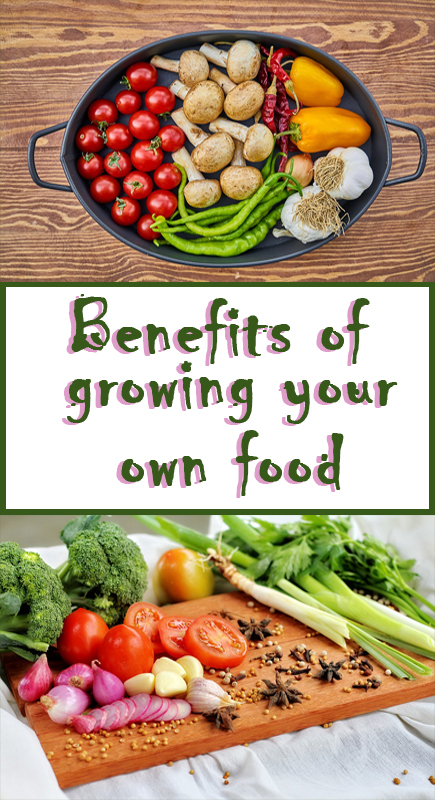
Among the most rewarding activities you and your loved ones may enjoy is to grow your own food. Besides being able to savor delicious fruits, veggies, and herbs from your own backyard, raising your own food positively affects your health, your loved ones and the environment.
A lot of studies have demonstrated that organically grown food has more minerals and nutrients that we need than food grown with man-made pesticides. There’s a great reason why a lot of chefs use organic foods in their recipes-they taste better. Organic farming begins with the nourishment of the soil, which finally leads to the nourishment of the plant and, at last our bodies.
Raising your own food may help cut the cost of the grocery bill. Rather than dropping 100s of dollars and month at the market on foods that don’t truly nourish you, spend time in the garden, outdoor, exercising, learning to raise your own food. The average youngster receives 4 times more exposure than a grownup to at least 8 widely utilized cancer-causing pesticides in food. Food selections you make now will affect your youngsters’ future wellness.
The Soil Conservation Service approximates more than three billion tons of topsoil are eroded from the U.S. croplands every year. That implies soil erodes 7 times quicker than it’s built up naturally. Soil is the base of the food chain in organic farming. But, in conventional farming, the soil is utilized more as a medium for containing plants in a vertical placement so they may be chemically fertilized. As a consequence, American farms are bearing the worst soil erosion ever.
Water comprises two-thirds of our body mass and covers 3/4 of the planet. The EPA estimates pesticides - a few cancer causing - contaminate the groundwater in thirty-eight states, polluting the primary source of drinking water for more than one-half the country’s population. American farms have shifted drastically in the last 3 generations, from family-based small businesses depending on human energy to mass factory farms. Modern farming utilizes more crude oil than any other single industry, eating up twelve percent of the country’s whole energy supply.
More energy is now utilized to produce synthetic plant food than to till, cultivate and harvest all the crops in the U.S. If you're growing your own food in the city, you're cutting back on transit and pollution costs. A lot of pesticides approved for utilization by the EPA were registered long before extended research linking these chemicals to cancer and additional diseases had been founded.
Now the EPA considers sixty percent of all weedkillers, ninety percent of all antifungal agents and thirty percent of all insecticides carcinogenic. The bottom line is that pesticides are poisons configured to kill living organisms and may likewise hurt humans. As well cancer, pesticides are implicated in congenital abnormality, nerve damage and chromosomal mutations. Besides being utilized to grow food, community gardens are likewise a great way to beautify a community, and to bring pride in ownership.


 Protected by Patchstack
Protected by Patchstack